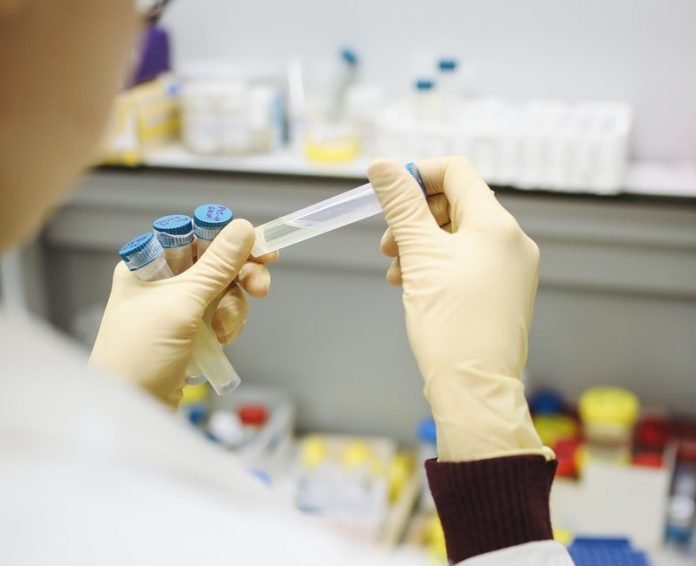
In a recent study published in Science Immunology, researchers found that the drug diABZI—which activates the body’s innate immune response—was highly effective in preventing severe COVID-19.
The findings suggest that diABZI could also treat other respiratory coronaviruses.
The study is from the University of Pennsylvania. One author is Sara Cherry, Ph.D.
The SARS-CoV-2 virus initially targets epithelial cells in the respiratory tract. As the first line of defense against infection, the respiratory tract’s innate immune system recognizes viral pathogens by detecting their molecular patterns.
Few drugs have been identified as game-changers in blocking SARS-CoV-2 infection.
In the study, the team found that the virus is able to hide, delaying the immune system’s early recognition and response.
They predicted that they may be able to identify drugs—or small molecules with drug-like properties—that could set off this immune response in the respiratory cells earlier and prevent severe SARS-CoV-2 infection.
The researchers performed a high throughput screening of 75 drugs that target sensing pathways in lung cells.
They also tested a newly-developed drug called diABZI, which is not approved by the Food and Drug Administration but is currently being tested in clinical trials to treat some cancers.
The researchers found that diABZI could inhibit SARS-CoV-2 infection of diverse strains, including a variant of concern B.1.351.
Finally, they tested the effectiveness of diABZI in mice that had been infected with SARS-CoV-2.
The treated mice had much-reduced viral loads in their lungs and nostrils, and increased cytokine production—all supporting the finding that diABZI stimulates interferon for protective immunity.
The study’s findings offer promise that diABZI could be an effective treatment for SARS-CoV-2 that could prevent severe COVID-19 symptoms and the spread of infection.
Additionally, since diABZI has been shown to inhibit human parainfluenza virus and rhinovirus replication, it may be more broadly effective against other respiratory viruses.
If you care about COVID-19, please read studies about people with these blood types may have lower risk of severe COVID-19 and findings of this common blood thinner drug can help inhibit COVID-19 virus.
For more information about COVID-19 and your health, please see recent studies about COVID-19 vaccinations: What you need to know about the second dose and results showing that people with this bone problem twice as likely to die if they have COVID-19.
Copyright © 2021 Knowridge Science Report. All rights reserved.



